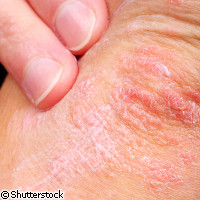EU-funded researchers discover new immune cell
EU-funded researchers have discovered a new type of immune cell that plays a role in certain chronic inflammatory diseases such as psoriasis and asthma. The team hopes that their discovery will eventually lead to the development of new drugs to treat these diseases. The study, published online in the Journal of Clinical Investigation (JCI), was partly supported by the EU through the SENS-IT-IV ('Novel testing strategies for in vitro assessment of allergens') project, which was funded to the tune of EUR 11 million under the 'Life sciences, genomics and biotechnology for health' Thematic area of the Sixth Framework Programme (FP6). The scientists, from Germany, Italy and the UK, found the new cells by studying skin samples taken from people suffering from psoriasis, atopic eczema and allergic contact dermatitis. Dubbed Th22, the newly-discovered cell is a type of immune cell called a T helper cell. T helper cells are white blood cells that activate other immune cells when the body comes under attack from a virus or bacterium, for example. In addition, T helper cells control inflammation in the body to help fight off infection. Th22 cells appear to be involved in overseeing and coordinating the immune cells that cause inflammation. The scientists' investigations revealed that the Th22 cells produce a signalling molecule called interleukin-22 (IL-22). This molecule provides tissues with an advance warning that inflammation or infection is going to happen, thus giving the tissues time to prepare to attack the invading pathogen or protect themselves against inflammation. In healthy people, the Th22 cells therefore have a protective effect. However, in people with chronic inflammatory skin diseases, the Th22 cells do not work properly, causing skin cells to grow too quickly, ultimately resulting in painful, flaky skin. 'We are seeing an increase in chronic diseases like skin and airway disease because of changes in people's lifestyles,' commented Dr Carsten Schmidt-Weber of the National Heart and Lung Institute of Imperial College London in the UK. 'These diseases can have a big impact on people's lives, and patients can face a constant battle to keep their symptoms at bay. We are very excited about discovering this new subset of T-helper cells, as we believe it could provide a new target for the treatment of chronic inflammatory diseases in the future.' The researchers are now studying the Th22 cells in greater detail with a view to clarifying their role in inflammatory diseases. The team is also keen to find out where the cells are produced in the body and if there is any way of controlling them before they start to cause problems. The aim of the SENS-IT-IV project is to reduce experiments on animals by developing alternative, in vitro ways of testing for allergens. The project brings together 15 universities and research institutes as well as 9 companies and a small number of industrial and other organisations. According to the project partners, 'the successful project outcome will contribute to a reduction in the number of animals required for safety testing and the establishment of more accurate tools for product development. Thus, the project will be of substantial benefit to all European citizens and will enhance the competitiveness of European industry'.
Countries
Germany, Italy, United Kingdom



